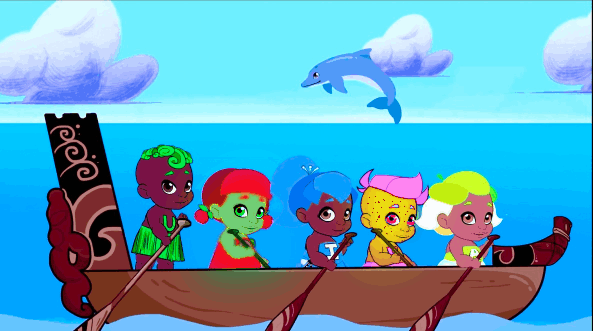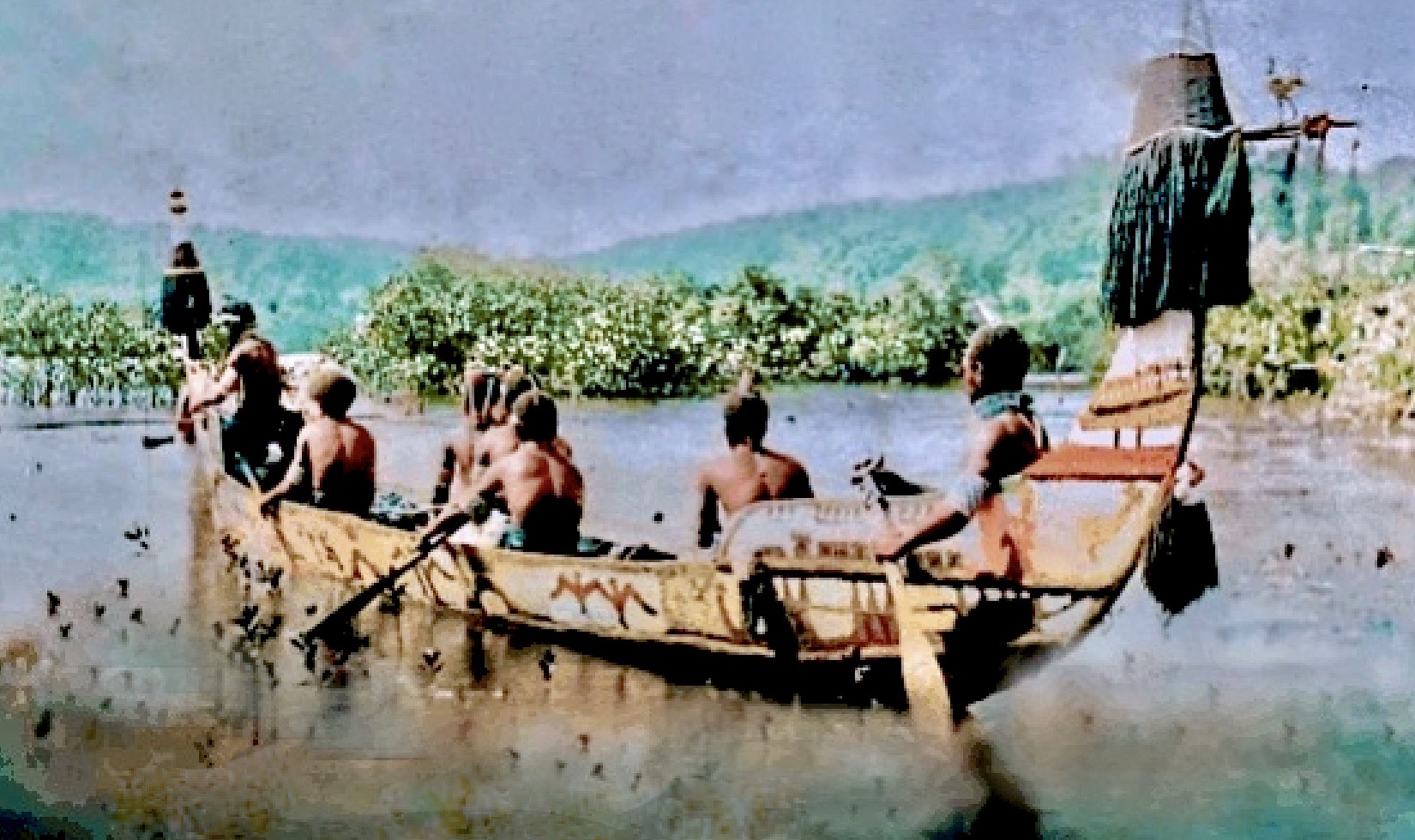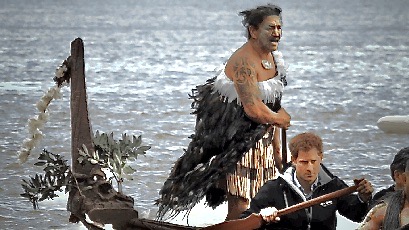 This
is a great song. I have not come across any song with
technical canoeing terms previously, so I learnt a
lot. The
Takaro Tree recordings are sung in an East Coast/Tuhoe
dialect.
I have slowed down the chipmunk voices in the Takaro Tree video, and lowered the voices to normal human pitch (using the free Audacity app). A slightly different version
Singable kids
version
I am most grateful to Laura M for
emailing me a more coherent Takaro Tribe audio file and for
translating some of it for me, and special thanks also Reupena
Tawhai for finally getting it all correct.
|
|||||||||||||||||||||||||||||
|
|
|
||||||||||||||||||||||||||||
| New words for
me Ranga - get it moving
Whakatera- go faster tauihu - bow or figurehead tiheru- bailer
taupoki - capsize. Tuhoe / East Coast dialect words Kaupokina, is a passive dialect form of Taupoki, to capsize
Kai-uri, is a dialect form of Kai-urungi the captain Word use The -ia, -ia, -ia, sounds in the
second line hold the verses together and makes it fun for kids
to sing, but notice they denote different verb tenses, as
active, passive and commanding.
Tāngia is not the passive of tangi= to cry. "To be cried over" would use the word tangihia. Note that your tongue goes forward pronouncing "ti" so it is ALMOST /tsi/, while your tongue is further back for "to," so it is ALMOST /do/. Sung all over the Pacific All over the Pacific, people listen to, understand and sing songs and videos in Aotearoa's Polynesian dialect, with its Scottish /r/ replacing the usual Pacific /l/ sound, (just as we can follow and sing songs in the Scottish, Texan or Indian dialects of English) Canoes are used in everyday life in the islands far more than in NZ. Versions in Samoan, Tongan, Hawaiian or Tahitian would be great. Here's a draft version in Fijian. Remember that
'b' indicates the sound /mb/ as in 'timber.'
'c' indicates the sound /th/ as in 'these.' 'd' indicates the sound /nd/ as in 'hinder.' 'g' indicates the sound /ng/ as in 'singer, wringer.' 'q' indicates the sound /ng-g/ as in 'finger, hunger, anger.' Na ivoce ni bavelo
Curuma na wai, curumai na wai, me rawa ni toso. Na ivoce ni bavelo me rawa ni toso me lako na bavelo Na mua ni bavelo Musuka na ua, x3 Musuka na ua ni wasawasa levu, Me drodro kina na bavelo  Na
gone ni bavelo
vakalala na wai, x3 Vakalala na wai mai na ra ni bavelo de qai vuki na balavu. Na turaga ni bavelo veisautaka na sala x3 Na turaga ni bavelo vuki yani ki vanua na ivoce ni bavelo. |
|||||||||||||||||||||||||||||


